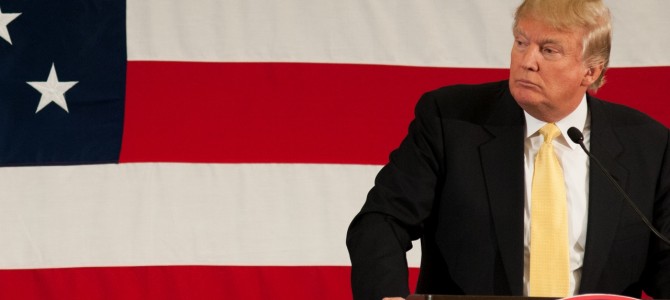
So there is a clear movement underway to challenge Donald Trump via a third party vehicle, a movement featuring a group of #NeverTrump figures including radio host Erick Erickson, lobbyist Bill Wichterman, and businessman Bob Fischer. They are agitating for a third party candidate who could potentially appeal to the host of Americans who seem to be with them in opposing Trump to the last, even as a nominee – exit polls from Tuesday suggested plenty of appetite for a third-party alternative to Donald Trump, with 37 percent of the Republican electorate in Ohio or Florida saying they would consider a third party given a Trump-Hillary nomination pair.
That’s a far more significant number than we’ve seen under prior candidacies, and it’s certainly possible that a portion of that will actually bolt. If just a third of the Republican primary voters who say they would vote third party over Trump end up sticking to their word, that’s 12 or 13 percent – enough to swing the election to Hillary Clinton absent a major uptick in Independent voters to offset the loss.
Of course, as Independent candidacies go, the Libertarian Party is a far more appealing vehicle than mounting a bid unattached to any party, as Philip Bump notes.
When Michael Bloomberg was still considering a third-party bid, MSNBC’s Benjy Sarlin looked at what it would take to get on the ballot. In Texas, for example, an independent candidate would need tens of thousands of signatures by May 9 in order to get on the ballot. A more likely scenario would be finding a candidate who could run on a party line that’s already likely to qualify for the ballot in enough states to make a difference. Sarlin points out that the Libertarian Party will likely hit that mark – meaning that conservatives could find themselves in the unusual position of encouraging Republicans to avoid the Republican candidate for president and vote for the Libertarian, at least this once. If they find a candidate. And if everything else falls into line.
Here you have to make a real decision about what you want to achieve with a third party candidacy. Is it merely an expression of rage against the dying of the light, an opportunity to throw your vote away on a true believer or someone who can give voice to the case for free markets, free hearts, free foreheads? Or is the intention to actually undo the nominations by both parties by sending the nomination to the House of Representatives? If it’s the former, any potential candidate would do – anyone with enough name ID and charisma to get 5 percent in the polls and make it onto the debate stage.
The likely result of any significantly backed third party candidacy would be to throw the election to Hillary Clinton. In 2012, Barack Obama got 65 million votes, Mitt Romney got 60 million votes, and Gary Johnson – the only other candidate to break a million – got about 1.3 million votes. There is a significant potential, given the strong opposition to both frontrunners, that a third party bid this year could accrue a much larger degree of support – say 3-5 million votes.
The smart thing for both the #NeverTrump folks and for the Libertarian Party – assuming that neither faction would ever come around to supporting Trump as the nominee – would be to nominate someone with regional political appeal and the capacity to win a handful of key states, enough to prevent either Clinton or Trump from achieving an electoral college majority. At that stage, the House votes based on state delegation for any of the top three vote getters – that’s how you got John Quincy Adams.
The Libertarians have their convention at the end of May, and the current likely candidate is Gary Johnson, the former New Mexico governor, climber, and generally nice oddball. But he’s pro-choice and has never shown appeal beyond the normal Libertarian ranks.
If the #NeverTrump people want a protest vote, their best path is a Libertarian takeover, with someone who is Libertarianish on some issues – pot, prostitution, marriage – and yet pro-life and pro-religion enough to win over the votes of the holdouts to the Trump machine: churchgoing evangelicals, avowed social and fiscal conservatives, and those who just find his presence on the national scene to be a vulgar and demeaning one. (It’s no accident that Trump’s worst numbers come in states with heavy Mormon populations.)
Whoever the #NeverTrump folks settle on, they’d be wiser to choose someone with the ability to win a few key states, not just to make a generalized protest vote case against Clintonism and Trumpism. They should be focused on making a difference in the outcome, not just providing a better vehicle for throwing your vote away.









